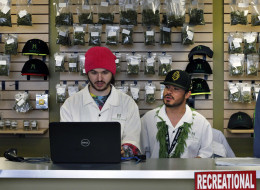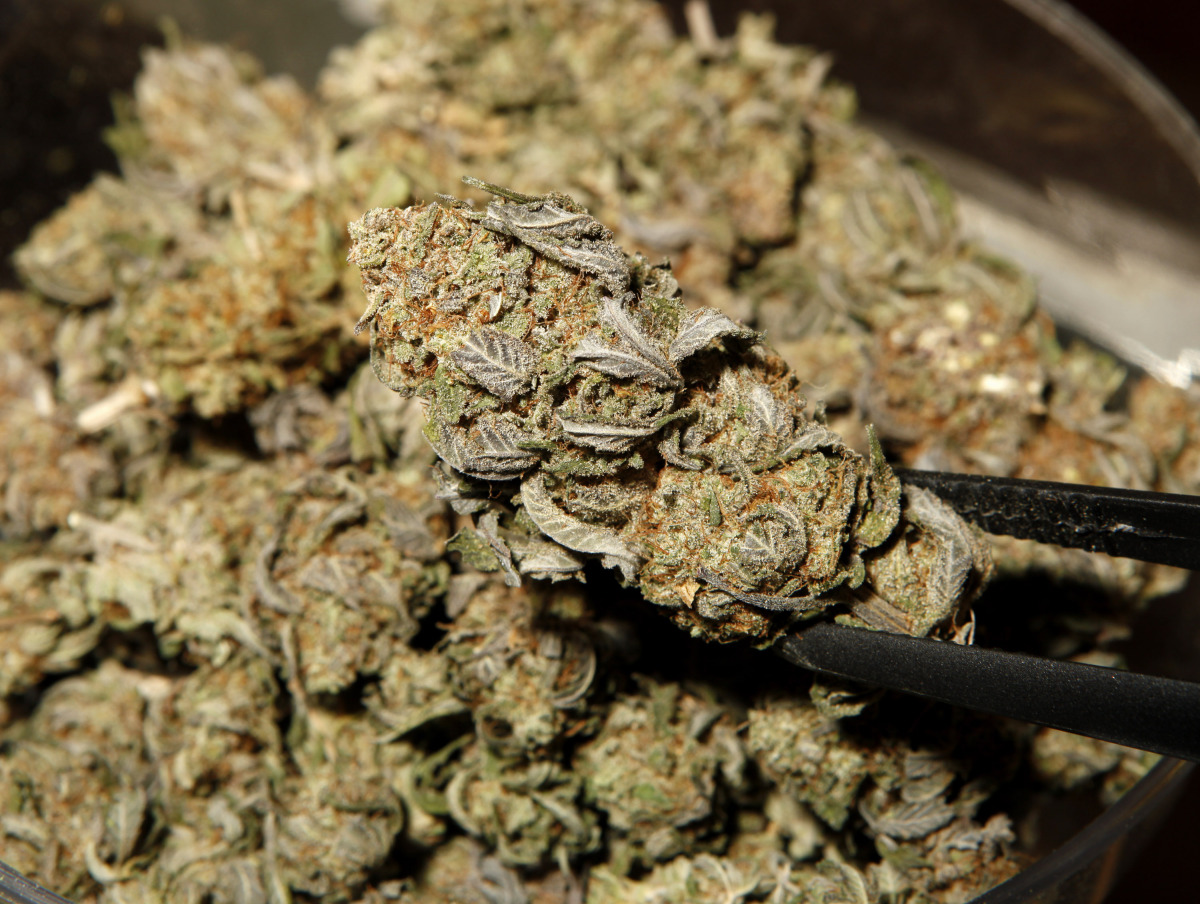"The Green Fund" Hedge Fund- The Best Marijuana
Stocks WNTR http://www.thegreenfund.us/
CBC | Posted: 03/10/2014 5:00 am EDT | Updated: 03/10/2014 7:59 am EDT

You may have read about it, you may have heard it on the news, or seen it on Facebook.
But believe me, nothing prepares you for Grandma cookies baked in "cannabutter," the pot smokers' smoking bus tour, the world of "vaping" (a soccer mom favourite apparently) and the marijuana-infused chocolate dips, bath salts, sodas and, yes, sour patch gummy bears. All are part of Denver's ode to pot.
Denver now has more marijuana stores than Starbucks coffee shops.
Since New Year's Day, when marijuana was legalized in Colorado, this city has seemed to exist outside of America.
Colorado took the jump — the first of two states, Washington the other, to legalize recreational marijuana — the debate is now over.
It's the new reality here: highly (pardon me) regulated, and surprisingly disciplined, and it seems to be working just fine, for now.
Colorado marijuana growers and sellers, who could only cater to medical marijuana users before Jan. 1, can now sell to anyone 21 years and over with a valid ID.
Residents can buy one ounce at a time, visitors are limited to a quarter ounce. All products are imprinted with bar codes, and are electronically traceable.
Don't try to smoke it in a public place, you'll get a fine.
And no, you can't take it with you when you leave the state. All the marijuana has to be grown, sold and bought in Colorado.
The green rush
The new law is manna for people like Toni Fox, owner of the 3D Cannabis Centre.
She made $1,000 a day in sales when she was catering to medical marijuana users. Now that she's gone recreational, she believes that by the fall, she'll be making $100,000 a day.
The new gold rush in Colorado is decidedly green.
That first day drew huge lineups, three hours long, at dispensaries — like the ones at Apple stores on the day a new iPhone comes out.
No one whined. Those waiting in line that freezing Colorado winter morning — a dry cold, as they say here — were going to buy legal pot for the first time in their lives for most of them.The excitement kept them warm
That same excitement, and the thrill of not having to hide your pot away, is attracting many Americans to Denver nowadays, a kind of spillover tourist boom.
Matt Brown, is the co-founder of My 4/20 Tours, "the first legal marijuana tourism company in North America." He has thousands on his waiting list, he says.
He gets clients like Mauricio and Kim, from El Paso Texas. They came to Denver for a total marijuana weekend. Pot à gogo, without the guilt trip. They even get to attend a marijuana cooking class.
"It's like being in Amsterdam without having to take a plane," Mauricio says.
Pot tourists can eat it, smoke it, drink it, chew it, bathe in it, inhale it from a battery-powered vaporize rand even rub it in.
They can visit grow-ops and dispensaries where jars of marijuana are neatly arranged by strains.
Try the candies
In Denver, you can buy some "Juicy Fruit" and "Purple Kush" and "Gigabud"as well as all sorts of spreadables, chewables and edibles. That's where the money is.
Smoking is out. Denver has a Clean Air Act that forbids smoking in public places, and that includes joints, of course. So eating marijuana-laced cookies, cakes and candies is the thing now.
Back at Love's Oven, for instance, one of many budding marijuana bakeries,business is up more than 1,000 per cent. Hope, the executive chef, can't bake them fast enough.
Her best-seller?The ginger cookie that "will make you happy for a long time."
Yesterday's pushers are today's marijuana entrepreneurs: promoters, sellers growers and bakers . You can find them sipping martinis on a Friday evening at the casual chic, Space Gallery, for a "Threesome with Mary Jane" soirée, at $120 a pop for food, open bar and a nearby limo bus to smoke your pot.
It's a new world. It is also a big social issue and so it has become a specialty beat for The Denver Post. The state's largest daily now has a website dedicated to marijuana, The Cannabist, with its own editor in chief and pot critics.
The Colorado experiment, as it's called,looks to be quite the success, so far. The state might even make as much as $150 million this year in marijuana taxes (almost double previous estimates). Much of that money will be by law reinvested in schools and education.
It's early days, of course, but there has been no reported increase in crime or traffic accidents.
One imponderable, though: how to test for driving under the influence of marijuana?
And then, there is the banking issue.
Banks are still nervous about accepting drug profits — it's still a crime federally here in the U.S. — although Washington has said it won't prosecute in states where pot is legal.
Many dispensaries store their money in safes. But one can bet that, as profits grow, banks will happily join the green rush.


















